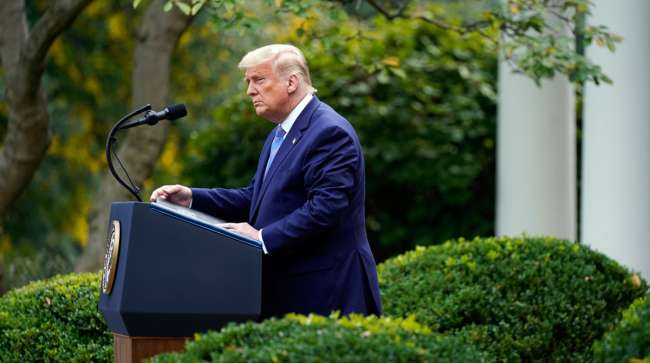Trump speaks in the Rose Garden in 2020. (Evan Vucci/Associated Press)
President Donald Trump will announce his reciprocal tariff push on April 2 during an event in the White House Rose Garden, his top spokesperson said.
White House Press Secretary Karoline Leavitt said March 31 the announcement would feature “country-based” tariffs, but added that the president is also “committed” to implementing sectoral duties at another time. Members of Trump’s Cabinet would attend the announcement, Leavitt said.
“The president will be announcing a tariff plan that will roll back the unfair trade practices that have been ripping off our country for decades,” Leavitt told reporters at the White House. “It’s time for reciprocity, and it’s time for a president to take historic change to do what’s right for the American people.”
Leavitt declined to provide details when asked about the rate of the reciprocal tariffs and which countries would be hit. She said there are “no exemptions at this time” in response to a question about whether lower duties would be applied to products used by American farmers.
Nick Darman of Alvys discusses the evolution of transportation management systems and workflow automation, while David Bell of CloneOps.ai shares insights from the Manifest 2025 supply chain innovation conference. Tune in above or by going to RoadSigns.ttnews.com.
The spokeswoman pointed to examples of tariff rates from the European Union, Japan, India and Canada while speaking to reporters, signaling those entities are among the targets of the president’s new levies.
Trump has billed April 2 as the launch of sweeping duties that are the centerpiece of his plan to rebalance global trade, boost U.S. manufacturing and inject tariff revenue into government coffers to fund domestic priorities, including a major tax cut.
But the uncertainty surrounding his plans have triggered fears they could blow up supply chains and raise prices for U.S. consumers, fueling a weeks-long selloff on Wall Street that extended into March 31.
“Wall Street will work out just fine in this administration, just like they did in the first term,” Leavitt said.







